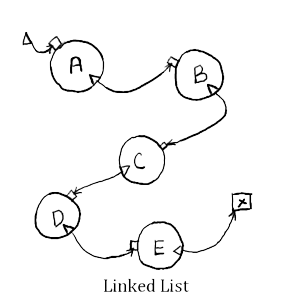هدف از تبادل شفاهی آداب و رسوم نیک کرداری در سازمان، بررسی روشهای برقراری ارتباط بزرگترین سازمانهای بخش خصوصی سوئد و ترکیه با کارکنان و تاثیر آن بر روی رفتار کارکنان است.

Communicating the ethos of codes of ethics
این عنوان مقاله ایه که چند روز پیش یکی از استادای دانشگاه واسه ترجمه بهم داد و من با زحمت بسیار توی 23 ساعت اونو ترجمه کردم! واقعا متنش سنگین بود.
مقاله ی ترجمه شده تحت عنوان تبادل شفاهی آداب و رسوم نیک کرداری در سازمان رو می تونید از انتهای صفحه دانلود کنید. اگه دوس داشتین مقاله اصلی رو قرار دادم!
خلاصه موضوع مقاله به زبان اصلی
Communicating the ethos of codes of ethics within the organization
A comparison of the largest private sector organizations in Sweden and Turkey
Abstract
Purpose – The purpose of the paper is to examine the ways that the largest private sector organizations in Sweden and Turkey communicate the intent of their codes of ethics to their employees.
Design/methodology/approach – Primary data were obtained via a self-administered mail questionnaire distributed to a census of the top 500 private sector organizations based on revenue in each country.
Findings – The research identified some interesting findings that showed that the small group of companies in Turkey that have a code may appear to be more “advanced” in ethics artifacts usage than Sweden. Such a conclusion is counter-intuitive as one would have expected a developed nation like Sweden to be more advanced in these measures than a developing nation such as Turkey. Culture may play a large role in the implementation of ethics artifacts in corporations and could be a major reason for this difference.
Research limitations/implications – As this is such a new area of investigation in Turkey, the responses amount to only 32 companies that have a code. The small sample is indicative of the formative evolution toward having codes of ethics within companies operating within Turkey.
Practical implications – This study enables those organizations that comprise corporate Turkey to view the current state of codes of ethics in Turkish companies and to compare these with the responses of a developed country of the European Union.
Originality and value – A review of the literature indicates that this is the first time that such an international study specifically focused upon codes of ethics and the artifacts to inculcate the ethos of the code into every day corporate affairs has included Turkey as one of the participating countries.
Keywords Employee communications, Codes, Private sector organizations, Sweden, Turkey,
Business ethics
تبادل شفاهی آداب و رسوم نیک کرداری در سازمان
مقایسه بزرگترین سازمان های بخش خصوصی در سوئد و ترکیه
خلاصه
هدف
هدف از این مقاله، بررسی روشهای برقراری ارتباط بزرگترین سازمانهای بخش خصوصی سوئد و ترکیه با کارکنان و تاثیر آن بر روی رفتار کارکنان است.
طرح / روش شناسی / رویکرد – اطلاعات اولیه از طریق پست الکترونیک که محتوی پرسشنامهها بودند بین 500 سازمان برتر بخش خصوصی- از نظر درآمد- در هر دو کشور توزیع شد.
یافتهها – این تحقیق منجر به شناسایی برخی یافتههای جالب شد که نشان میدهد روش برخورد گروه کوچکی از شرکتها در ترکیه – شاید به دلیل اصول اخلاقی- به ظاهر پیشرفتهتر از سوئدیها باشد. بدیهی است که انتظار میرفت کشور پیشرفتهای مانند سوئد حرفهای تر از کشور در حال توسعهای همچون ترکیه باشد. فرهنگ، نقش بزرگی در به کارگیری اصول اخلاقی در شرکتها داشته که میتواند دلیل عمدهای بر این ادعا باشد.
محدودیتهای تحقیق / استنباط – نتایج این گونه مطالعات در ترکیه، به دلیل تازگی، تنها شامل تعداد 32 شرکت که دارای اساسنامه اخلاقی هستند می باشد. این نمونهی کوچک، نشانگر تکاملی تدریجی به سمت تدوین اساسنامه های اخلاقی در شرکتهای ترکیهای است.
مفهوم عملی – این بررسی به سازمانهای ترکیهای امکان مشاهده وضعیت فعلی قوانین اخلاقی شرکتها و مقایسهی آن با پاسخ کشورهای توسعه یافتهی اتحادیه اروپا را میدهد.
اصالت و ارزش – بررسی این نوشته نشان از آن دارد که این اولین بار است که چنین بررسی بین المللی که به طور خاص بر روی قوانین اخلاقی و به کارگیری این گونه رسوم در کار و بار روزانهی سازمانی تمرکز دارد، کشور ترکیه را به عنوان یکی از کشورهای شرکت کننده، مورد بحث قرار داده است.
کلمات کلیدی – ارتباط کارکنان، سازمانهای بخش خصوصی، سوئد، ترکیه، ضوابط اخلاقی، اخلاق در کسب و کار.
 هفته پیش واسه درس اصول و شیوه ارئه مطالب باید یه موضوعی رو ارائه میدادم، اولش می خواستم دربارهی مروگرها ارائه بدم، ولی نظرم عوض شد و اچ تی ام ال 5 رو انتخاب کردم. پاورپوینت HTML5ای که آماده کردم رو می تونی در انتهای صفحه دانلود کنید. سعی کرده بودم مطالب عمومی باشه و فقط یه مرور رو ویژگیهای این نسخه جدید داشته باشم. یک صفحه از خلاصه ارائه رو می تونید در فایل فشرده پاورپوینت ببینید!
هفته پیش واسه درس اصول و شیوه ارئه مطالب باید یه موضوعی رو ارائه میدادم، اولش می خواستم دربارهی مروگرها ارائه بدم، ولی نظرم عوض شد و اچ تی ام ال 5 رو انتخاب کردم. پاورپوینت HTML5ای که آماده کردم رو می تونی در انتهای صفحه دانلود کنید. سعی کرده بودم مطالب عمومی باشه و فقط یه مرور رو ویژگیهای این نسخه جدید داشته باشم. یک صفحه از خلاصه ارائه رو می تونید در فایل فشرده پاورپوینت ببینید! سر کلاس ساختمان داده یه پروژه لیست پیوندی معرفی کرد که چون زمان تحویلش مصادف با زمان امتحان اردوها بود من زودتر نوشتمش تا مشکلی پیش نیاد. بعد دو ترم که داشتم نگاه می کردم چیز زیادی از +cc یادم نمی یومد! ولی بالاخره این پروژه رو نوشتم. حالا سوال و پروژه نوشته شده رو واستون می ذارم، یه نگاهی بهش بندازین تا اگه مشکلی داره بگین درسش کنم. دوشنبه می خوام تحویلش بدم.
سر کلاس ساختمان داده یه پروژه لیست پیوندی معرفی کرد که چون زمان تحویلش مصادف با زمان امتحان اردوها بود من زودتر نوشتمش تا مشکلی پیش نیاد. بعد دو ترم که داشتم نگاه می کردم چیز زیادی از +cc یادم نمی یومد! ولی بالاخره این پروژه رو نوشتم. حالا سوال و پروژه نوشته شده رو واستون می ذارم، یه نگاهی بهش بندازین تا اگه مشکلی داره بگین درسش کنم. دوشنبه می خوام تحویلش بدم.